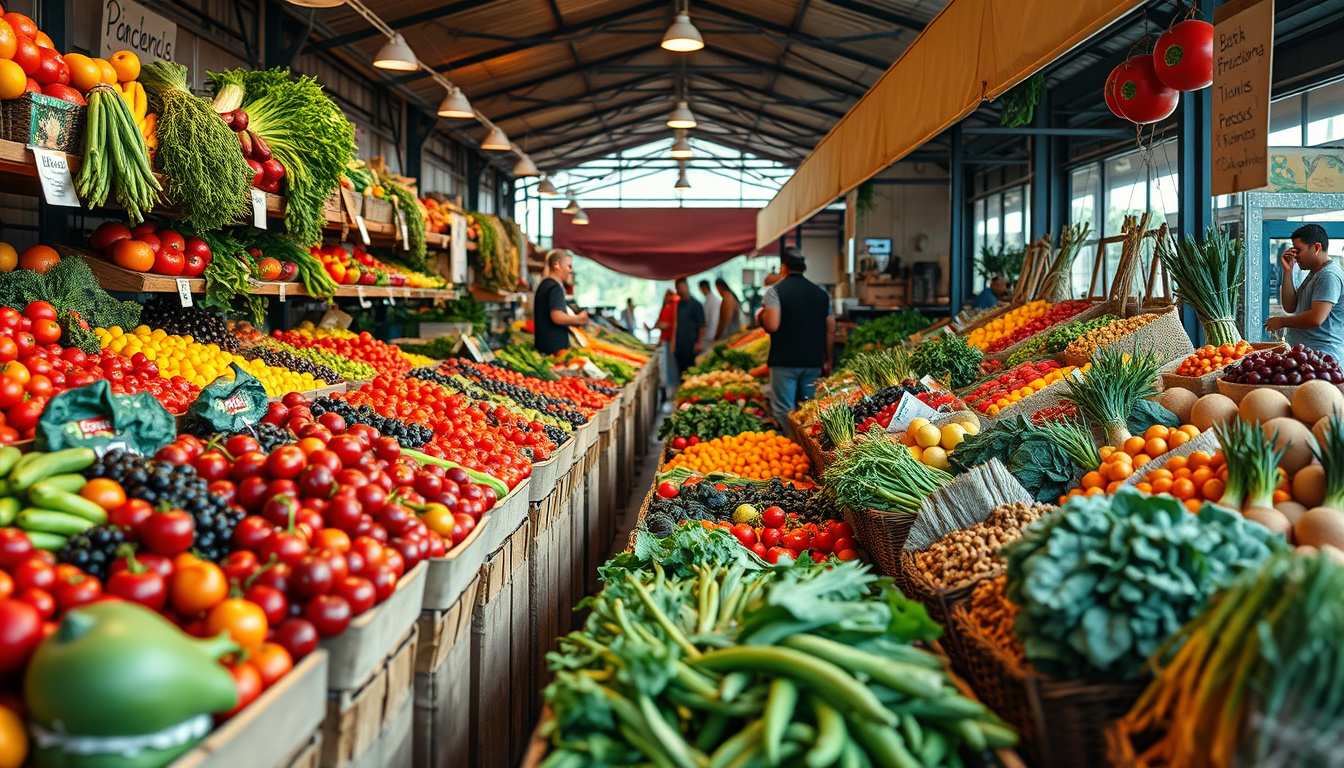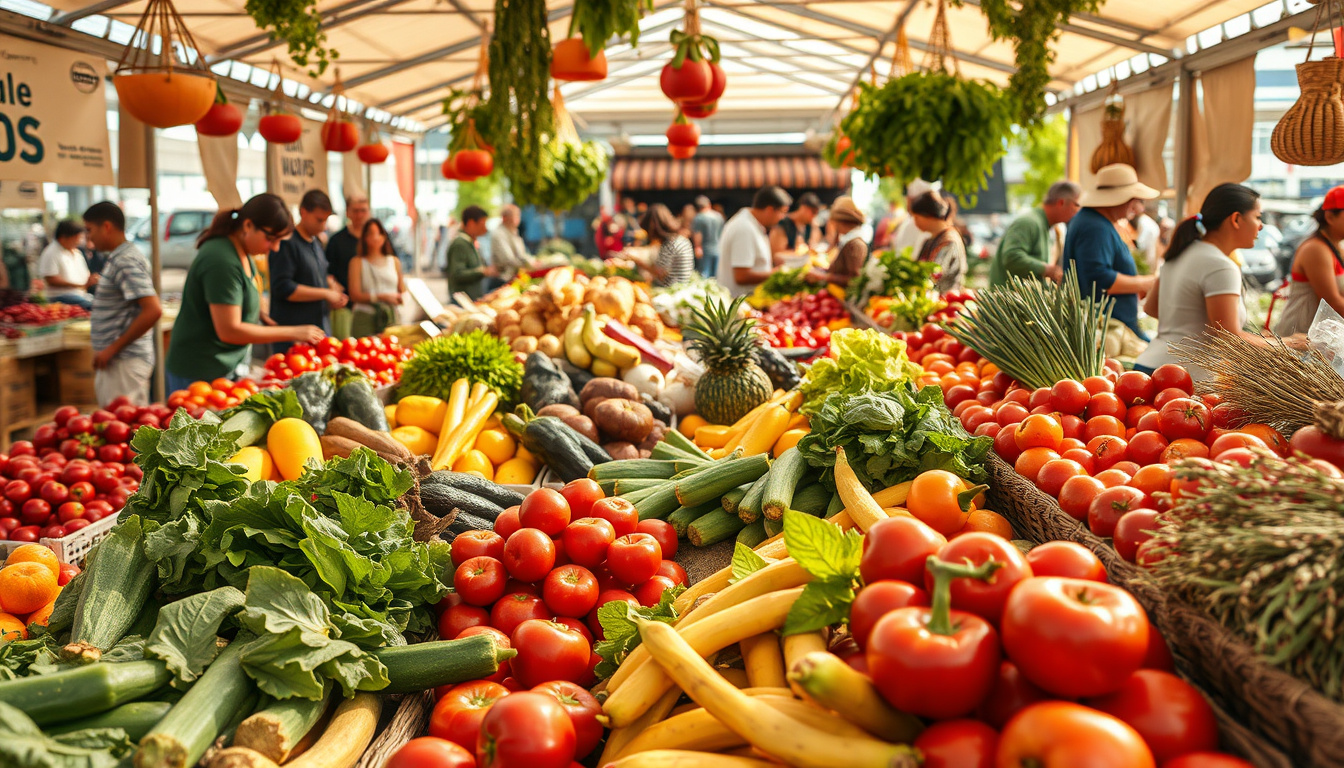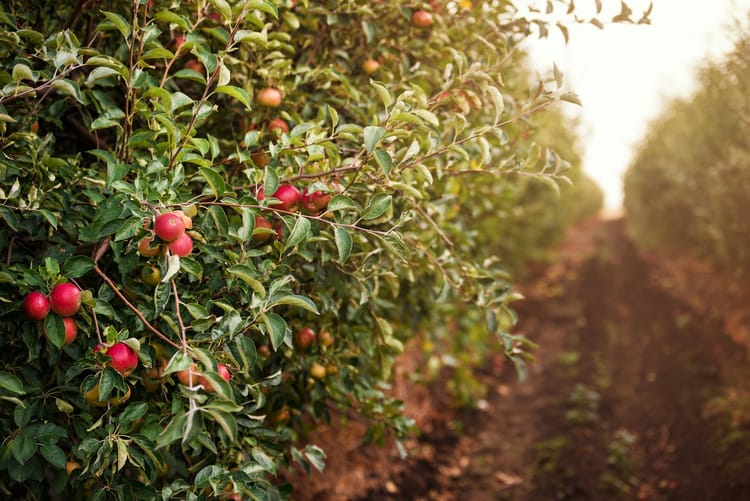Local vs. Imported Organic Produce

When it comes to grocery shopping, the choice between local vs. imported organic produce often sparks lively debates among health-conscious consumers. Organic produce holds a reputation for being fresher and healthier, but whether to choose local or imported options can be a daunting decision for many. In this article, we will delve into the nuances of organic certification, explore the benefits of local organic produce, examine the advantages of imported organic options, and provide you with insights to make informed choices that ultimately contribute to a healthier lifestyle.

Something New
- Local organic produce supports community farmers and reduces carbon footprint.
- Imported organic produce can provide access to a variety of seasonal fruits and vegetables year-round.
- Both local and imported organic produce must meet strict organic certification standards.
- Choosing local organic produce often means fresher options with higher nutrient levels.
- Informed consumers can balance their purchases of local vs. imported organic produce for optimal health benefits.
Understanding Organic Certification
When it comes to choosing healthy food options, understanding organic certification is crucial, particularly concerning local vs. imported organic produce.
Organic certification ensures that the agricultural practices used to grow food meet specific standards, focusing on sustainability and the absence of synthetic pesticides and fertilizers. However, consumers often face a dilemma: should they purchase local organic produce or opt for imported varieties? Local organic produce typically travels a shorter distance to reach your plate, reducing its carbon footprint and often providing fresher options.
In contrast, imported organic produce may offer a wider variety, especially during off-seasons, but it can also expose consumers to complex supply chains that may affect freshness and transparency in certification. By considering these factors, shoppers can make informed decisions that align with their values and dietary preferences.
Benefits of Local Organic Produce
When it comes to choosing between local vs. imported organic produce, the benefits of opting for local options are numerous. Firstly, local organic produce often retains more nutrients, as it is harvested at peak ripeness and delivered to markets much faster than imported varieties.
This short supply chain not only enhances flavor and freshness but also supports local economies and farmers. Additionally, buying locally reduces the carbon footprint associated with transporting food over long distances, making it a more environmentally responsible choice.
Furthermore, supporting local farms fosters community connections and enhances food security, as consumers become more familiar with where their food comes from and the practices behind its cultivation. Emphasizing local organic produce also promotes sustainable agricultural practices that prioritize soil health and biodiversity, ensuring a healthier ecosystem for generations to come.
'You are what you eat, so don't be fast, cheap, easy or fake.' - Unknown

Advantages of Imported Organic Produce
When comparing local vs. imported organic produce, several advantages of imported options come to light. Firstly, imported organic fruits and vegetables often allow consumers access to a wider variety of produce that may not be locally available due to climate or growing conditions.
For example, tropical fruits like mangoes or avocados may be enjoyed year-round thanks to careful import practices. Additionally, imported organic produce can support food security by diversifying the supply chain, ensuring that consumers have consistent access to fresh organic options regardless of local harvests.
Furthermore, organic farming methods applied in different regions often exhibit unique practices that can yield products with distinct flavors and nutritional profiles. While local organic produce promotes sustainability and supports local economies, it's important to recognize the benefits of integrating imported organic produce into our diets, enriching our culinary experiences and contributing to a more resilient food system.
Making Informed Choices for a Healthier Lifestyle
When it comes to making informed choices for a healthier lifestyle, one of the most significant decisions revolves around the consumption of organic produce. The debate of local vs. imported organic produce plays a crucial role in understanding which option is healthier, more sustainable, and more beneficial for the community.
Local organic produce tends to be fresher, as it travels shorter distances from farm to table, which means it retains more nutrients and flavor. Additionally, purchasing locally often supports smaller farms and reduces the carbon footprint associated with transportation.
On the other hand, imported organic produce can offer varieties that are not locally available, providing greater options for consumers, especially in off-seasons. However, these imports may sometimes lose freshness during transit, which can affect their nutritional value.
Therefore, weighing the benefits and downsides of local vs. imported organic produce enables consumers to make more informed choices, aligning their dietary habits with their health goals and supporting sustainable practices.
Ever wondered about this?
What is organic certification and why is it important?
Organic certification ensures that the produce has been grown and processed without the use of synthetic fertilizers, pesticides, and genetically modified organisms (GMOs). It is important because it provides consumers with confidence that they are purchasing products that meet strict organic farming standards.
What are the benefits of choosing local organic produce?
Local organic produce is often fresher, as it has less time in transit, which can enhance its flavor and nutritional value. Additionally, purchasing local supports the local economy and reduces the carbon footprint associated with transportation.
What advantages do imported organic produce have?
Imported organic produce can offer a wider variety of fruits and vegetables that may not be available locally due to seasonality or climate. It can also be more affordable, especially if local organic options are limited or more expensive.
How can I make informed choices when purchasing organic produce?
To make informed choices, consider factors such as the origin of the produce, seasonal availability, and certifications. Researching local farms and understanding where the produce comes from can help you weigh the benefits of local versus imported options.
Is there a difference in nutritional value between local and imported organic produce?
Generally, organic produce—whether local or imported—meets the same standards and is free from harmful chemicals, but local produce may retain more nutrients due to its freshness. However, the nutritional differences are often minimal, and both choices can be part of a healthy diet.
We publish a quarterly magazine available in IOS, Android and Web reader. Stories and articles curated from amazing people all around the world.




